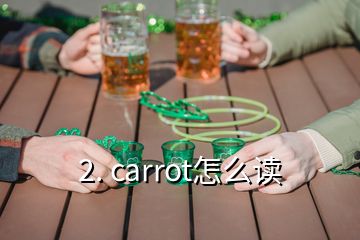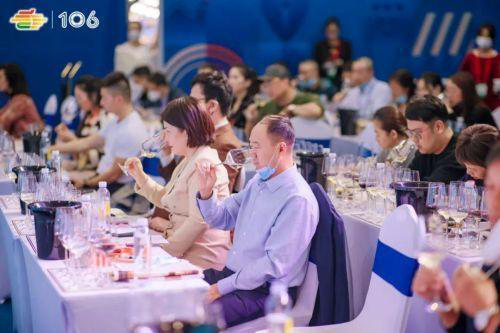1. grape怎么读

grape的读音为[ɡreɪp]。意为葡萄。
2. carrot怎么读

carrot 英[ˈkærət] 美[ˈkærət] n. 胡萝卜; 〈非正式〉好处,回报; 不能兑现的报酬; [例句]They will be set targets, with a carrot of extra cash and pay if they achieve them会给他们设定目标,如果能达到,就能得到额外的现金和报酬。[其他] 复数:carrots 中文谐音:开咯特
3. pear怎么读
pearl 英 [pɜːl] 美 [pɜːrl] 过去式: pearled 过去分词: pearled 现在分词: pearling 第三人称单数: pearls n.珍珠 v.(用珍珠)装饰;呈珍珠状 adj.珍珠般的 用作名词 (n.) The pearl sparkled in the moonlight. 那颗珍珠在月光下闪闪发光。 She wears a pearl necklace today. 今天她戴了一条珍珠项链。
4. apple怎么读
apple 英[ˈæpl] 美[ˈæpəl] n. 苹果; 苹果公司; 苹果树; [例句]I want an apple.我想要一个苹果。[其他] 复数:apples
5. grape怎么读音
orange的发音不同。glass、grape的发音都是很轻的“g”音
希望我的回答对你有帮助哦?
6. central怎么读
CPU是计算机的运算和控制核心。主要由运算器、控制器、寄存器组和内部总线等部件组成。
运算器:用于对数据运行运算
算术逻辑单元(ALU):负责处理数据
累加寄存器(AC):为ALU提供一个工作区
数据缓冲寄存器(DR):作为CPU和内存、外部设备之间数据传送的中转站和操作速度上的缓冲。
状态条件寄存器(PSW):存放当前指令运行结果的各种状态信息。控制信息。
控制器:控制整个CPU工作,使计算机运行过程自己主动化
指令寄存器(IR):CPU运行指令时,先从DR中把指令送入IR暂存。然后指令译码器依据IR的内容产生各种微指令。
程序计数器(PC):具有寄存信息和计数的功能。
每读一条指令装入IR,然后PC+1
地址寄存器(AR):AR保存当前CPU所訪问的内存单元的地址,知道内存的读/写完毕。
指令译码器(ID):ID对指令中的操作码字段进行分析解释,也就是来识别指令规定的操作。识别后向操作控制器发出详细的控制信号,控制各部件工作,以完毕所需的功能。
寄存器组:
专用寄存器:运算器和控制器中的寄存器是专用寄存器。其作用是固定的。
通用寄存器(GPR):參加ALU运算的操作数通常来自GPR。运算结果也送回GPR。
可由程序猿规定其用途。
内部总线:
通过内部总线将CPU内部的全部结构单元内部相连。就如铁轨一样,火车必须行驶在铁轨上。
7. peach怎么读
你好! 桃子 peach 英[pi:tʃ] 美[pitʃ] n. 桃子; 桃红色; 极好的人; (或物) adj. 桃红色的; 粉红色的; [例句]The flesh of the peach was sweet and juicy. 桃子的果肉甜而多汁。
8. grapefruit怎么读
juice 英 [dʒuːs] 美 [dʒus] n. (水果)汁,液;果汁 短语 Orange Juice 橙汁 ; 橘子汁 ; 桔子原汁 ; 柳橙汁 grapefruit juice 葡萄柚汁 ; 西柚汁 ; 蒲萄柚汁 ; 柚子汁 cranberry juice 蔓越莓汁 ; 红莓汁 ; 越橘汁 ; 蔓越橘汁
9. grape怎么读语音怎么读
葡萄的声调是第二声,声调,是指声音的高低升降的变化,在现代汉语语音学中,声调是指汉语音节中所固有的,可以区别意义的声音的高低和升降,音乐中的音阶也是由音高决定的,可以用音阶来模拟。
音节(Syllable)是表音语系中单个元音音素和辅音音素组合发音的最小语音单位,单个元音音素也可自成音节。汉语中没有音节的概念,音节是借用词。
10. Touchthegrape怎么读
原文
To Autumn
John Keats
I.
Season of mists and mellow fruitfulness,
Close bosom-friend of the maturing sun;
Conspiring with him how to load and bless
With fruit the vines that round the thatch-eves run;
To bend with apples the moss’d cottage-trees,
And fill all fruit with ripeness to the core;
To swell the gourd, and plump the hazel shells
With a sweet kernel; to set budding more,
And still more, later flowers for the bees,
Until they think warm days will never cease,
For Summer has o’er-brimm’d their clammy cells.
II.
Who hath not seen thee oft amid thy store?
Sometimes whoever seeks abroad may find
Thee sitting careless on a granary floor,
Thy hair soft-lifted by the winnowing wind;
Or on a half-reap’d furrow sound asleep,
Drows’d with the fume of poppies, while thy hook
Spares the next swath and all its twined flowers
And sometimes like a gleaner thou dost keep
Steady thy laden head across a brook;
Or by a cyder-press, with patient look,
Thou watchest the last oozings hours by hours.
III.
Where are the songs of Spring? Ay, where are they?
Think not of them, thou hast thy music too,
While barred clouds bloom the soft-dying day,
And touch the stubble plains with rosy hue;
Then in a wailful choir the small gnats mourn
Among the river sallows, borne aloft
Or sinking as the light wind lives or dies;
And full-grown lambs loud bleat from hilly bourn;
Hedge-crickets sing; and now with treble soft
The red-breast whistles from a garden-croft;
And gathering swallows twitter in the skies.
译文
1
雾气洋溢,果实圆熟的秋,
你和成熟的太阳成为友伴;
你们密谋用累累的珠球,
缀满茅檐下的葡萄藤蔓;
使屋前的老树背负着苹果,
让熟味透进果实的心中,
使葫芦胀大,鼓起了榛子壳,
好塞进甜核;又为了蜜蜂
一次一次开放过迟的花朵,
使它们以为日子将永远暖和,
因为夏季早填满它们黏巢。
2
谁不经常看见你伴着谷仓?
在田野里也可以把你找到,
你有时随意坐在打麦场上,
让发丝随着簸谷的风轻飘;
有时候,为罂粟花香所沉迷,
你倒卧在收割一半的田垄,
让镰刀歇在下一畦的花旁;
或者,像拾穗人越过小溪,
你昂首背着谷袋,投下倒影,
或者就在榨果架下坐几点钟,
你耐心地瞧着徐徐滴下的酒浆。
3
啊,春日的歌哪里去了?
但不要想这些吧,你也有你的音乐——
当波状的云把将逝的一天映照,
以胭红抹上残梗散碎的田野,
这时啊,河柳下的一群小飞虫
就同奏哀音,它们忽而飞高,
忽而下落,随着微风的起灭;
篱下的蟋蟀在歌唱,在园中
红胸的知更鸟就群起呼哨;
而群羊在山圈里高声默默咩叫;
丛飞的燕子在天空呢喃不歇。
